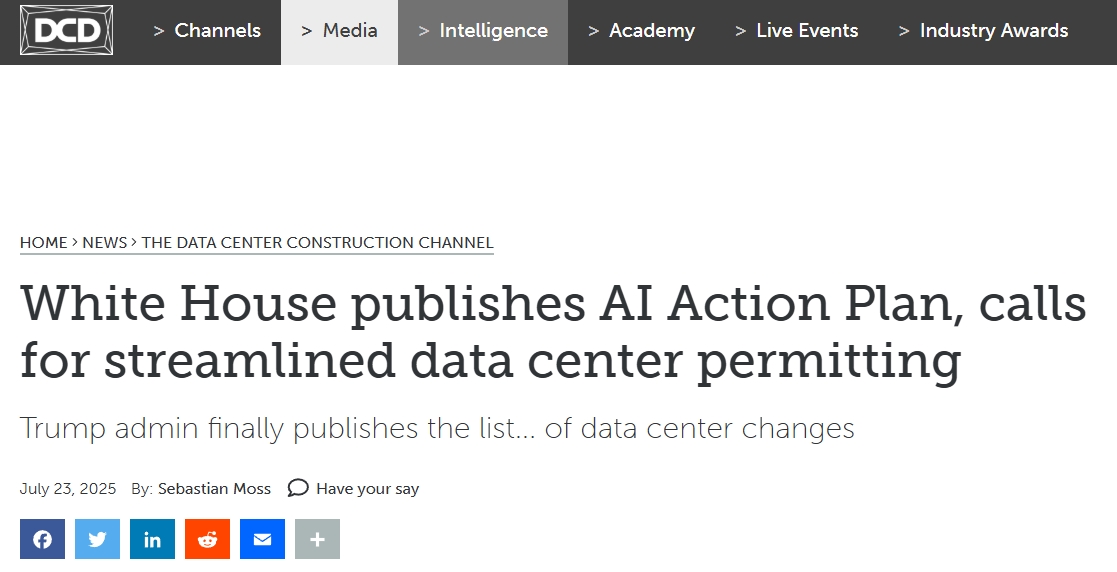Trump admin finally publishes the list... of data center changes.
The US government has published an 'AI Action Plan' aimed at maintaining the nation's lead in artificial intelligence.
The plan, the result of a President Trump executive order, makes more than 90 Federal policy suggestions, but does not itself mandate them.
Much of the plan is focused on model development and regulation, but it also looks at data center and grid deployment efforts.
The plan calls for the National Environmental Policy Act (NEPA) to have data center-related exclusions (something Anthropic suggested this week). It adds that FAST-41 (a way to speed up environmental reviews and permitting for infrastructure projects) should be expanded to include all data center adjacent projects.
The government should also "explore the need for a nationwide Clean Water Act Section 404 permit for data centers, and, if adopted, ensure that this permit does not require a Pre-Construction Notification and covers development sites consistent with the size of a modern AI data center," it added.
Similarly, it suggests "reducing regulations" under the Clean Air Act, the Clean Water Act, the Comprehensive Environmental Response, Compensation, and Liability Act, and other related laws. AI could also be used for environmental reviews, such as the DOE’s PermitAI project.
The plan reiterates a Biden-era call to use Federal land for data centers, but expands it beyond the DoD and DOE to any agencies with "significant land portfolios."
On the grid side, it suggests national initiatives to increase occupations like electricians and HVAC technicians. It also includes broad statements like "optimize existing grid resources as much as possible."
Some statements are at odds with each other - on the one hand calling for more power sources, and at the same time saying the government will "reject radical climate dogma." The Trump administration has cut fossil fuel regulations, but made it harder for renewable energy projects to be built - including essentially killing offshore wind development.
Similarly, on semiconductor development, it ignores the challenges caused by the rollback of the CHIPS Act and Trump's threats of semiconductor tariffs, instead saying that "the Trump Administration will lead that revitalization without making bad deals for the American taxpayer or saddling companies with sweeping ideological agendas."
The 'Big, Beautiful Bill' has increased the tax credit given for semiconductor development.
Beyond broader industries, the report also has military-specific suggestions.
It calls for agreements with cloud service providers, operators of computing infrastructure, and other relevant private sector entities that would give the DoD priority control over compute "during a significant conflict" or national emergency.
For scientific research, which has been significantly cut under Trump, the NSF, DOE, NIST, and other Federal partners should invest in automated cloud-enabled labs. The NSF and DOE are also expected to establish secure compute environments to enable secure AI use cases for controlled access to restricted Federal data.
"Winning the AI race will usher in a new golden age of human flourishing, economic competitiveness, and national security for the American people," the report's authors said.
"Winning the AI race will usher in a new golden age of human flourishing, economic competitiveness, and national security for the American people."








